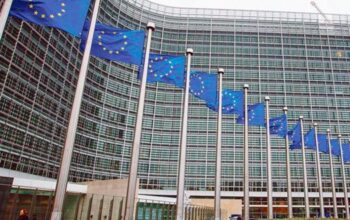The Government of Republika Srpska today delivered its 19th Report to the United Nations Security Council. The report advises the Council on the Entity’s positions with respect to a range of issues relevant to the international community’s involvement in Bosnia and Herzegovina. The executive summary of the report is below.
I. The Dayton Accords must be faithfully implemented.
Republika Srpska (RS) remains fully committed to the Dayton Accords and insists on their full implementation. This includes respect for the BiH Constitution, which is Annex 4 of the Dayton Accords, and the structures and protections it created. The RS also remains committed to resolving political disputes solely through peaceful and constitutional means. It asks the international community to condemn threats of violence by Bosniak leaders.
II. Allegations of RS “militarization,” under Russian influence or otherwise, have no factual basis and are intended as a pretext for heightened foreign intervention and to weaken the RS and its government.
As BiH’s 2018 elections approach, some political opponents of the RS Government have spun a wholly false narrative that the RS is militarizing. The RS’s recent procurement of rifles, which was necessary to modernize antiquated police weaponry, was fully transparent and conducted with the permission of all relevant BiH agencies. Notwithstanding claims of the RS’s political rivals, RS police have not trained with Russian personnel but do frequently train with U.S. armed forces and European police. The RS enjoys friendly relations with Russia, as well as with Western countries. There is no basis, however, for claims that the RS is a proxy for Russia, fabricated in an attempt to persuade western policy makers who oppose Russia to punish the RS and its leaders. The RS does not and will not act as a proxy for any foreign country. Moreover, contrary to baseless allegations, RS authorities have no affiliation with any paramilitary group; indeed there are no paramilitary formations operating on RS territory. The RS, unlike some Bosniak leaders, rules out the use of violence in political disputes.
III. BiH’s elections must be conducted free from foreign interference.
In this year’s elections, BiH citizens must be able to choose their own leaders without interference from any foreign state. The United States, according to U.S. Government reports, has long sought to affect elections in BiH through its funding of BiH media, and it appears to be intensifying such efforts. The United States should fully disclose its spending on BiH media and stop using the funds to influence elections.
IV. The SDA party is obstructing the implementation of judicial decisions critical to elections.
The SDA and other Bosniak parties have resisted implementing important decisions of the BiH Constitutional Court and European Court of Human Rights concerning elections. The BiH Constitutional Court’s 2017 nullification of a portion of the BiH Election Law means that without amendments to the law, there can be no formation of the Federation House of Peoples, BiH House of Peoples, Federation Presidency, or Federation Government. The SDA is blocking the necessary amendments because the SDA wants to retain the ability for Bosniaks to choose not only Bosniak but Croat representatives. These amendments are necessary to avoid a constitutional crisis. Contrary to some suggestions, it would be unlawful and unwise for the High Representative to try to resolve the issue by decree. The SDA has also blocked implementing the Constitutional Court’s 2010 decision on Mostar elections, thereby preventing local elections from being held since 2008. Moreover, the SDA has resisted implementing the European Court of Human Rights’ 2009 Sejdić-Finci decision. Despite the importance of implementing these decisions, the United States and others in the international community have been notably silent in the face of the Bosniak parties’ refusal to implement them.
V. The growing jihadist threat to BiH
As the Islamic State has lost its territorial base, the danger of terrorism in BiH has risen. BiH citizens who joined the Islamic State are returning to a BiH that remains a safe haven for jihadists. The SDA invited mujahidin to Bosnia and Herzegovina during the war and has continued its close ties to radical Islamists. BiH policies and the failure of BiH’s SDA-dominated security apparatus have also helped make the country a jihadist haven. The growing jihadist threat in BiH is not only a concern to the citizens of the RS, but also to EU member states.
VI. The RS supports BiH’s EU accession process and is continuing to implement reforms.
The RS strongly supports BiH’s EU integration efforts. The Coordination Mechanism for EU integration has proven effective despite opposition to establishing it by Bosniak political leaders. BiH’s different levels of government effectively used the Coordination Mechanism to prepare BiH’s answers to the European Commission’s Questionnaire consistent with constitutional competencies. The RS has been working diligently to implement the Reform Agenda for EU integration and enact other reforms to promote economic growth. One reform that is essential for BiH to become an EU member is the replacement of the foreign judges on the BiH Constitutional Court with BiH citizens. This reform has the support of all Serb and Croat leaders, but Bosniak leaders have blocked it because they see the Constitutional Court’s foreign members as allies.
VII. The international community should respect the Dayton Accords and BiH sovereignty.
The RS asks the international community to respect the Dayton Accords and BiH sovereignty. BiH’s friends in the international community should support reforms to restore the Dayton structure, refrain from intervening in BiH politics, and close the Office of the High Representative, which is incompatible with BiH sovereignty and EU membership. Moreover, the UN Security Council should end the unjustified application of Chapter VII of the UN Charter to BiH.
The RS will continue its commitment to the Dayton Accords, EU integration, and reforms to improve the wellbeing of its citizens.
Read the full report here.


